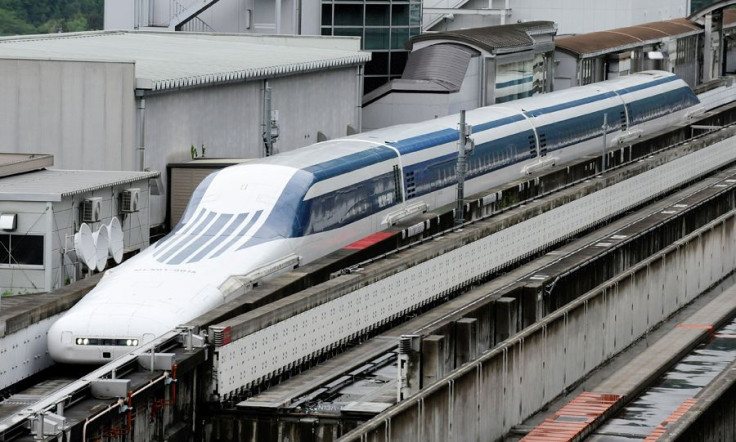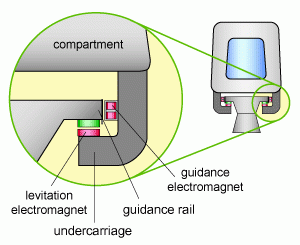Experimental maglev bullet train aims for 600kph speed record

A magnetic levitation (maglev) bullet train in Japan has broken a 12-year-old speed record by hitting 590 kilometres per hour (366 miles per hour), according to the Central Japan Railway Company.
The company intends to make another attempt at its own world record on Tuesday (21 April) when it will aim to exceed 600kph.
The speeds reached are more than 200kph faster than the UK's proposed high-speed HS2 train line, which will be capable of travelling at a maximum speed of 362kph.
How does magnetic levitation technology work?
Magnetic levitation (maglev) trains operate by using a magnetic charge to create a contactless transportation system that allows for high speeds by eliminating friction between the train and the track.

The record was set using a seven-carriage train on a test track in central Japan's Yamanashi prefecture.
The maglev train will not be used commercially until 2027 when construction of a train line between Tokyo and Nagoya is completed.
By 2045 it is hoped that the line will be extended to Osaka, reducing the journey time to an hour and seven minutes.
Speed restrictions will mean that commercial passengers will travel no faster than 505kph, cutting the journey time between the two cities in half compared to the Shinkansen Bullet trains that are currently used.
The company hopes to export the maglev technology it uses in its high-speed trains to the US.
According to the Wall Street Journal, Japan is willing to help finance the construction of a new train link between Washington and New York.
Commercial maglev trains already exist in various forms around the world, however their experimental nature mean that tracks are currently for short distances, such as the 30km Shanghai Pudong Maglev.
© Copyright IBTimes 2025. All rights reserved.






















